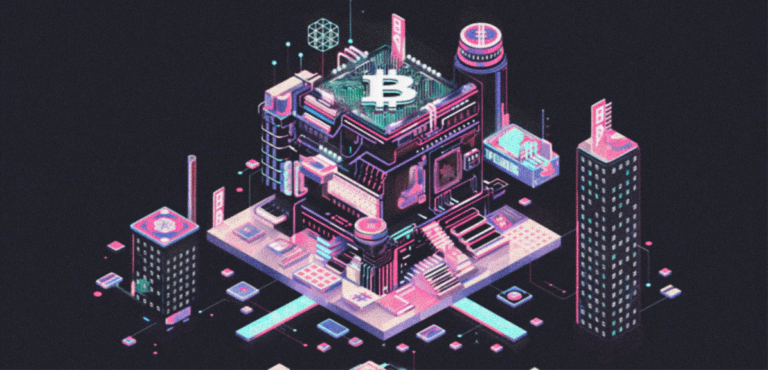
Future of Digital Finance Hinges on Blockchain and Crypto
The backbone of our future of digital finance lies in blockchain technology. Imagine a digital record book, constantly being written on by a network of computers around the world. Each new entry (transaction) is verified by this network and then permanently added to the record, creating a chain of tamper-proof blocks. This eliminates the need for a single authority to control the record, fostering trust and security within a decentralized system. In the simplest way I can describe, this distributed ledger system is blockchain technology.
Blockchain technology exists in two main forms- public and private blockchains. Public blockchains, ie. Bitcoin and Ethereum, are open to anyone to participate in verifying transactions, fostering transparency and decentralization. However, this openness can lead to slower transaction speeds and scalability challenges. Conversely, private blockchains offer permissioned access, allowing only authorized participants to verify transactions. This approach prioritizes speed and scalability, making it ideal for enterprise applications, but raises concerns about centralization and potential lack of transparency.
Beyond Crypto: the broader impact of Blockchain
The potential of blockchain extends far beyond digital money. Here’s how it’s poised to reshape various aspects of finance:
- Streamlined securities trading: Blockchain can automate processes, reducing settlement times and enhancing transparency in securities trading. Imagine a future where stock ownership is immutably recorded on a blockchain, eliminating intermediaries and paperwork.
- Democratizing investments: Blockchain enables the fractionalization of assets, allowing investors to participate in traditionally illiquid markets like real estate. By dividing assets into smaller, more affordable units, blockchain opens doors for more people to invest and potentially increases market liquidity.
- Smart contracts: automating agreements These self-executing contracts utilize blockchain to automate agreements. When predetermined conditions are met, the contract executes automatically, eliminating the need for intermediaries and reducing human error. This can significantly improve efficiency and reduce transaction costs in various industries.
- Revolutionizing supply chains: Blockchain can track the movement of goods and materials in real-time, ensuring transparency and facilitating faster payments within supply chains. By providing a secure and immutable record of every step in the process, from sourcing to delivery, blockchain can improve efficiency, reduce fraud risks, and enhance traceability.
- Empowering identity management: Blockchain-based systems can securely store and manage personal information. This empowers individuals with greater control over their data and streamlines Know Your Customer (KYC) processes for financial institutions.
A diverse crypto landscape
The most well-known application of blockchain is cryptocurrency. Bitcoin, the first and most popular, emerged in 2009 as a digital alternative to traditional currencies. Since then, a vast ecosystem of cryptocurrencies, each with unique features and purposes, has flourished. These digital assets offer several advantages, including decentralization, security, transparency, and accessibility. Unlike traditional currencies controlled by governments or central banks, cryptocurrencies operate on a peer-to-peer network, giving users more control over their finances.
Beyond Bitcoin, the world of cryptocurrencies explodes with a vast array of altcoins. These alternative coins offer unique functionalities and purposes, distinct from Bitcoin’s primary function as a store of value. Altcoins can be broadly categorized into:
- Payment coins: Designed for everyday transactions, prioritizing speed, scalability, and low transaction fees (e.g., Litecoin and Dash). These cryptocurrencies aim to be a faster and cheaper alternative to traditional payment methods.
- Utility tokens: Grant access to specific services or functionalities within a blockchain-based platform (e.g., Filecoin for decentralised storage networks). These tokens provide access to specific features or functionalities within a particular blockchain ecosystem.
- Security tokens: Represent ownership of real-world assets like stocks, bonds, or even real estate. Security tokens have the potential to revolutionize how assets are issued, traded, and managed by bringing greater efficiency and transparency to traditional financial markets.
The rise of Decentralized Finance (DeFi): a new financial ecosystem
DeFi (Decentralized Finance) refers to a growing ecosystem of financial applications built on blockchain technology. DeFi aims to replicate traditional financial services like lending, borrowing, and trading, but in a decentralized and permissionless manner. This disrupts the role of traditional financial intermediaries like banks and brokers, potentially offering greater accessibility and efficiency.
The future of finance remains uncertain, but the potential of blockchain technology to reshape the landscape is undeniable. As this technology continues to evolve and regulations take shape, we can expect to see a more integrated and efficient financial system. Whether we move towards a fully decentralized future, or a hybrid model remains to be seen. However, one thing is clear: blockchain and cryptocurrencies are forcing the traditional financial sector to adapt and innovate.
Distilled
The world of blockchain and cryptocurrencies is complex and ever evolving. This article has provided a foundational understanding of this exciting space and its potential impact on the future of finance. By staying informed and approaching any investment with caution, you can explore the possibilities that blockchain technology offers while managing potential risks.